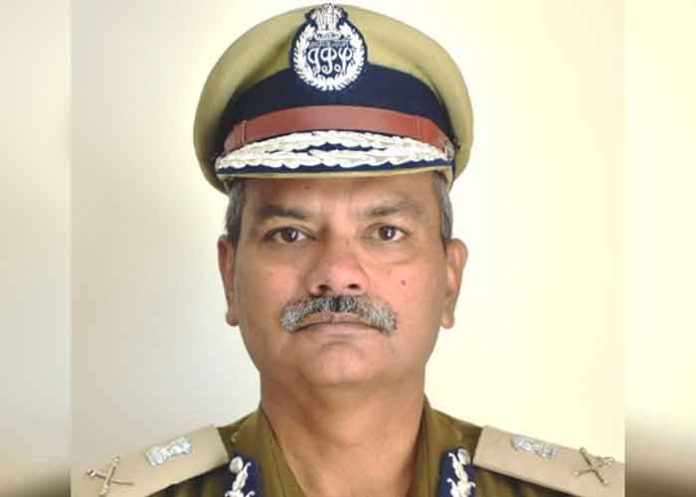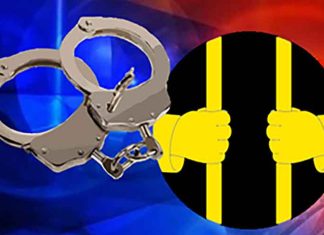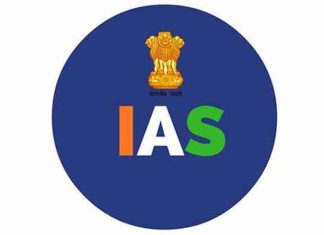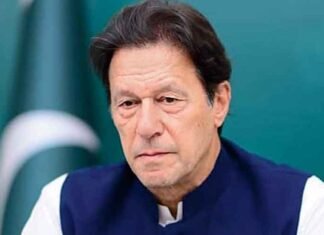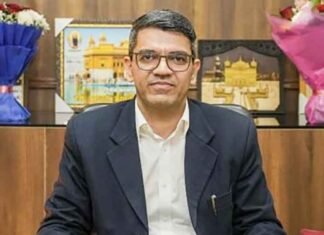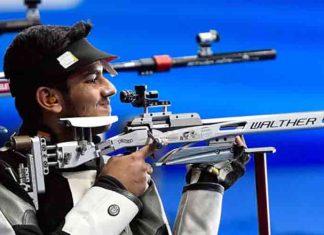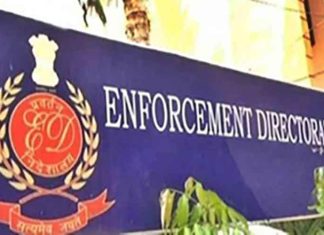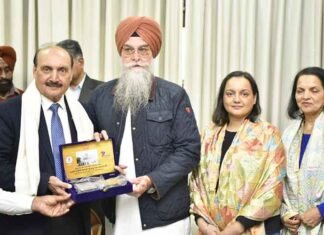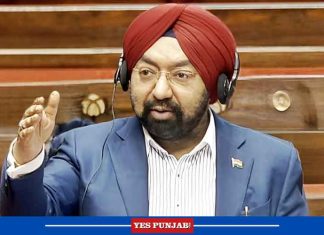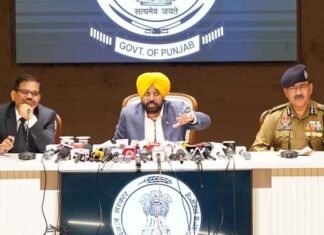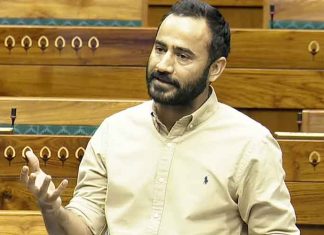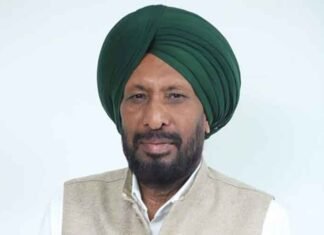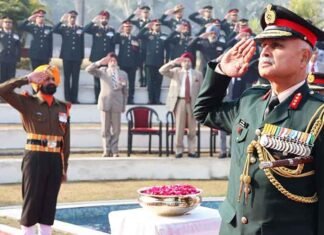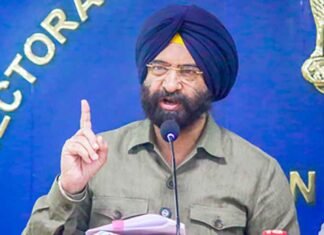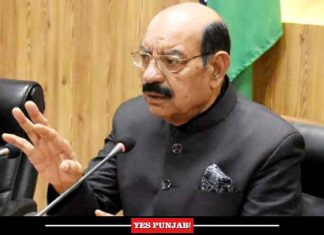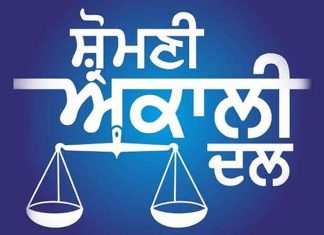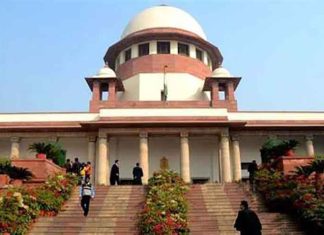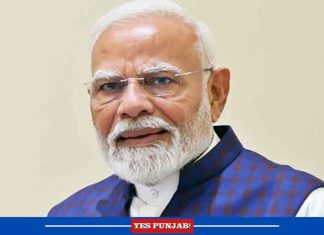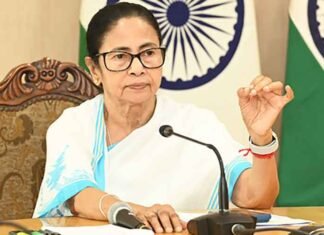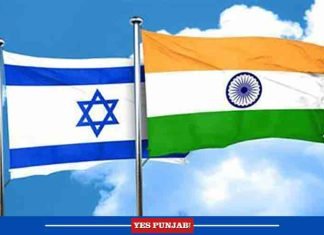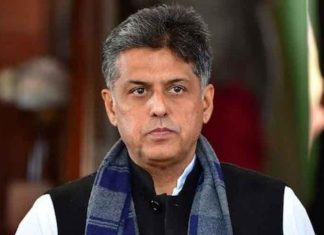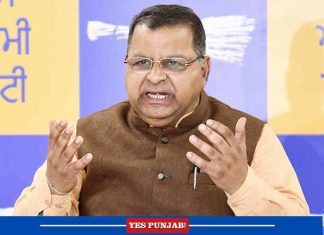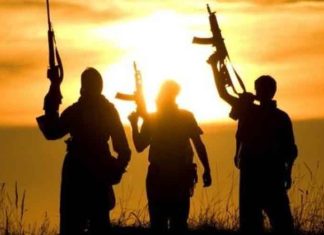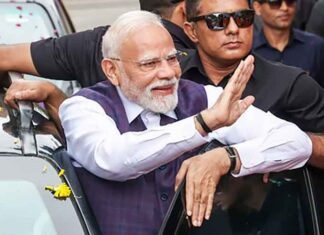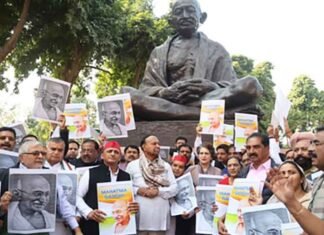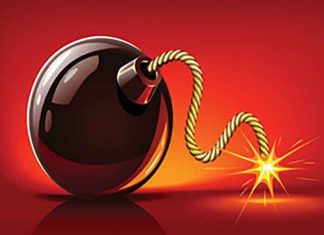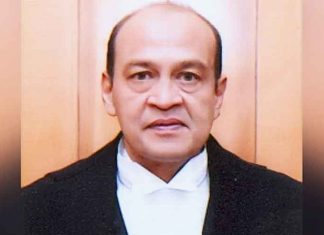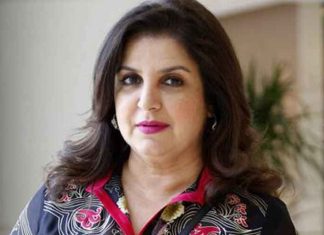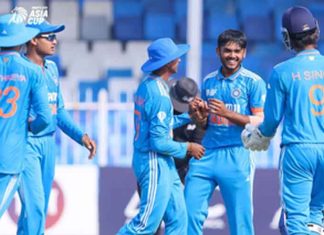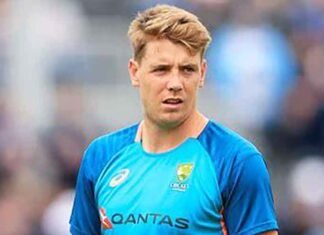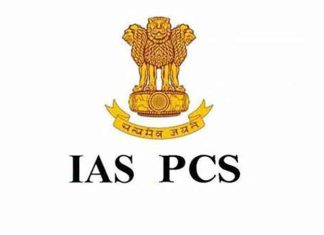New Delhi, September 19, 2024 (Yes Punjab News)
Anurag Garg, a 1993-batch Indian Police Service (IPS) officer, has been appointed as the new Director General (DG) of the Narcotics Control Bureau (NCB).
His appointment, which took effect on Tuesday, marks a significant leadership change in one of India’s most crucial agencies tasked with combating drug trafficking and illicit substance abuse. With extensive experience, including serving as the Additional Director General of the Border Security Force (BSF) in New Delhi, Garg brings a wealth of expertise to this role.
The NCB, which operates under the Ministry of Home Affairs, plays a pivotal role in enforcing the Narcotic Drugs and Psychotropic Substances Act (NDPS). It is a critical player in India’s battle against illegal drugs, and with Garg at its helm, the bureau is set to continue its mission of dismantling drug networks across the country and beyond.
Who is Anurag Garg?
Anurag Garg is a seasoned officer from the Indian Police Service, belonging to the 1993 batch of the Himachal Pradesh cadre. His impressive career spans over three decades of service in various capacities within law enforcement.
Known for his dedication and meticulous approach, Garg has risen through the ranks by demonstrating a keen understanding of both national and international security concerns, making him a suitable choice for leading the NCB.
Anurag Garg’s Career Highlights
Before assuming his role as the NCB DG, Anurag Garg served as the Additional Director General (ADG) at the BSF headquarters in New Delhi. His role in the BSF, one of India’s key paramilitary forces, involved significant responsibilities concerning border security.
Garg’s experience with the BSF is particularly relevant as India’s borders are often vulnerable to the trafficking of narcotics, making his insights into cross-border drug trade vital for his new role at the NCB.
Appointment as NCB Director General
The Ministry of Home Affairs officially announced Anurag Garg’s appointment through an order issued by the Appointments Committee of the Cabinet (ACC).
As per the order, Garg’s tenure as NCB DG is set to run until May 23, 2026, or until further instructions are issued. He takes over from CRPF DG Anish Dayal Singh, who had been holding the post in an additional capacity after the retirement of S N Pradhan in August. Garg’s appointment is a significant move, positioning him to spearhead India’s fight against the increasing menace of narcotics.
The Role of the Narcotics Control Bureau (NCB)
Established in 1986, the NCB functions under the Ministry of Home Affairs with a clear mandate to enforce India’s narcotic laws. It plays a central role in controlling the production, trafficking, and abuse of narcotic drugs and psychotropic substances. The bureau is tasked with conducting investigations, arresting offenders, and collaborating with other international drug enforcement agencies.
The Narcotic Drugs and Psychotropic Substances Act, 1985, is the primary legislation that the NCB enforces. This act allows the bureau to tackle both domestic and international drug trafficking and promotes rehabilitation for those affected by substance abuse.
Challenges Faced by NCB
India is geographically positioned in a region that poses significant challenges related to narcotics trafficking. Being bordered by countries such as Afghanistan (a major opium producer) and Myanmar (a key player in the global drug trade), India faces an ongoing battle with cross-border drug smuggling. Internally, the rise in synthetic drug production and the abuse of prescription drugs add to the complexity of the NCB’s work.
Anurag Garg’s Strategic Importance in NCB
Given his extensive experience in BSF, particularly in handling border security, Anurag Garg brings strategic insight into addressing cross-border narcotics trade. The porous borders India shares with several countries have been key entry points for narcotic drugs. Garg’s familiarity with these dynamics is expected to strengthen the NCB’s efforts to clamp down on drug smuggling.
NCB and its Recent Leadership
Anurag Garg takes over from leaders like S N Pradhan, who served as the NCB DG until August, and CRPF DG Anish Dayal Singh, who held the position in an additional capacity. Each of these leaders made contributions to NCB’s evolving strategy, focusing on intelligence-based operations and extensive collaborations with state police forces. Garg is expected to build on this foundation and perhaps introduce new policies aimed at more proactive measures against drug cartels.
India’s Fight Against Drug Trafficking
India’s drug problem is not limited to its borders—it extends to international networks. The NCB collaborates with various international organizations like the United Nations Office on Drugs and Crime (UNODC) to tackle these global drug networks. Domestically, the bureau works closely with state enforcement agencies to dismantle drug networks and prosecute offenders.
NCB’s Achievements So Far
Over the past few years, the NCB has achieved significant milestones, including the dismantling of major drug cartels and seizing large quantities of narcotics. Its operations have led to the arrest of numerous high-profile traffickers, and its efforts have made a substantial impact on reducing the inflow of drugs into India.
What’s Next for NCB Under Garg’s Leadership?
As Anurag Garg steps into the role of NCB DG, he is likely to focus on tightening cross-border cooperation with neighboring countries and enhancing intelligence-sharing networks. With his BSF experience, he could bring a more militarized approach to drug enforcement, focusing on surveillance and stringent border controls. Garg’s leadership could also see a stronger emphasis on rehabilitative measures for drug addicts, aligning with broader public health strategies.
The Impact of NCB’s Work on Indian Society
NCB’s work has a profound impact on the social fabric of India. The bureau’s success in curbing drug trafficking directly contributes to reducing crime rates, improving public health, and protecting vulnerable populations, particularly the youth, from falling into the trap of drug addiction.
Public Perception and Media Coverage of NCB
The NCB has often found itself in the media spotlight, especially during high-profile drug busts and celebrity-linked investigations. While the bureau’s work has been lauded, it has also faced criticism, particularly regarding its approach in high-visibility cases. Under Anurag Garg’s leadership, the bureau may aim to fine-tune its public relations strategy to improve transparency and public confidence.
Collaboration with International Agencies
International cooperation is crucial for the Narcotics Control Bureau (NCB), as drug trafficking is a global problem that transcends borders. The NCB actively collaborates with international organizations like the United Nations Office on Drugs and Crime (UNODC) and the International Narcotics Control Board (INCB).
These collaborations help in sharing intelligence, conducting joint operations, and monitoring drug trafficking routes that originate in or pass through countries like Afghanistan, Myanmar, and other neighboring regions.
Furthermore, the NCB also works closely with enforcement agencies from countries like the United States (DEA), the United Kingdom, and various European nations to dismantle international drug cartels. This international cooperation has been essential in curbing the illicit trade of narcotic substances and psychotropic drugs in India.
Anurag Garg’s leadership is expected to further strengthen these global ties, given his background in border security, which is vital for combating cross-border drug smuggling.
Critical Times, Growing Challenges
Anurag Garg’s appointment as the new Director General of the Narcotics Control Bureau (NCB) comes at a critical time when India is facing growing challenges in drug trafficking, both domestically and internationally. With his extensive experience in law enforcement, particularly his role in the Border Security Force (BSF), Garg brings a wealth of knowledge to the NCB that is likely to help bolster the agency’s efforts in combating the narcotics trade.
As the NCB continues its mission to crack down on drug trafficking, Garg’s leadership will play a pivotal role in shaping future strategies, strengthening international cooperation, and increasing the effectiveness of India’s fight against illegal drugs.
The expectation is that his tenure will not only bring about more robust enforcement but also potentially introduce new approaches to tackling the drug problem in India.
FAQs
1. What is the role of the Narcotics Control Bureau (NCB)?
The NCB is a central law enforcement and intelligence agency under the Ministry of Home Affairs, tasked with combating drug trafficking and the use of illegal narcotics and psychotropic substances. It enforces the Narcotic Drugs and Psychotropic Substances (NDPS) Act and works to dismantle drug cartels operating in India and internationally.
2. How long will Anurag Garg serve as the NCB Director General?
Anurag Garg’s tenure as the Director General of the NCB is set to run until May 23, 2026, or until further orders, whichever comes earlier, according to the Ministry of Home Affairs’ appointment order.
3. What were Anurag Garg’s previous roles before this appointment?
Before becoming the Director General of NCB, Anurag Garg served as the Additional Director General (ADG) of the Border Security Force (BSF) at its headquarters in New Delhi. He has a distinguished career in the Indian Police Service (IPS), belonging to the 1993 batch of the Himachal Pradesh cadre.
4. What challenges does the NCB face in India?
The NCB faces several challenges, including controlling cross-border drug smuggling, dismantling domestic drug networks, tackling the rise in synthetic drugs, and addressing the misuse of prescription medications. The agency also faces the challenge of dealing with international drug cartels that have far-reaching networks.
5. How does the NCB work with international agencies?
The NCB collaborates with international agencies such as the United Nations Office on Drugs and Crime (UNODC), the International Narcotics Control Board (INCB), and foreign law enforcement agencies like the DEA (United States) to share intelligence, conduct joint operations, and combat global drug trafficking networks.



